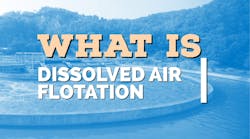Earlier this year, on a business trip to Japan, I stayed in a nice hotel in the Akasaka section of Tokyo. As in many hotels these days, there were the usual cards in the bathroom and signs on the wall asking guests to consider the environment during their stay by reusing the towels and considering whether the sheets really needed to be changed every day.
But this hotel also offered an incentive I had not seen before. In the bathroom was a small basket that held items such as face cloths, soap, toothbrush and a razor. Along with these common items was a green disk about 3 in. in diameter with a round hole in the middle. It looked like a green plastic washer, and the hotel called it its “Green Coin,” part of the Green Coin Incentive Program. With it was a card explaining to hotel guests that they were welcome to use any of the various toiletry items; however, if they chose not to, they were entitled to take the green disk down to the lobby to “donate” it. At the front desk in the lobby stood a small display stand with three long rods on which guests could place their green coins and, once the rods were full, the hotel would make a donation to one of two charitable forestry programs.
Inciting Motivation
If a program like this helps to reduce waste and directs investment to worthwhile charitable forestry programs, then my congratulations to the hotel and everyone who participates. But it did get me thinking about what would motivate someone to participate and what could be done to get more participants. In looking at the motivations involved, the program was obviously directly beneficial to the hotel, as it saved on the expense of replacing razors and toothbrushes every day. The charitable programs that are beneficiaries of this program also receive a direct benefit. Hotel guests perhaps gain the personal satisfaction of having participated in a good cause. This is an altruistic benefit, as the guest also gives up the advantage of the free toiletries.
Most programs of this type rely on the use of similar indirect benefits to encourage people to participate. They rely on personal satisfaction or a sense of responsibility to encourage participation. But I think most of us recognize that this type of motivation will only go so far and only a minority of people will take serious action or make any significant changes to their habits (many of us are well intentioned, but often will not get beyond those good intentions). Social pressures and a desire for conformity will only go so far. Regulation, taxes and penalties also will work, but only to the extent that they are meaningful compared with the inconvenience of compliance. Human nature would say that we are all going to act in our own self interest. By matching sustainable compliance to our own personal interest, could compliance with such programs be significantly higher? In the case of this hotel program, I am guessing that more people would have been interested in participating in the program if there was some direct personal benefit.
Personal Incentive
That got me thinking about incentives that might increase compliance with the program by providing a direct benefit to the guest.
In discussing this with others, some have suggested that one option would be to have some discount on the price of the room—a $5 reduction, for example—each day the toiletries were not used. This is could still be an indirect benefit if guests are business travelers, with their company picking up the bill. The same conditions would apply to a discount or coupon for the hotel restaurant. A cash refund might be a personal incentive, but many companies may require this to be declared and returned to the company.
Taking it even further, would a deposit of points to a frequent traveler program be effective? The points could be added to the hotel’s own program, or perhaps to a participating airline program. Would a gift of some sort at checkout be an incentive? Business people often have spouses or children left at home as they travel; perhaps a nice gift to bring home from the trip might be motivation enough. This also would provide a guest with the personal satisfaction of being seen collecting a sustainability gift at checkout. How about something else of benefit to a traveler that a company might not allow them to expense? A free pay-per-view movie? A free drink from the mini-bar? Perhaps a menu of choices could be available so that there is something that appeals to everyone.
This principal is not novel; incentives are used in all sorts of situations. I am aware of programs that are being used to increase compliance with recycling and other environmental programs. I am equally sure that there are lots of incentive programs for sustainability and water programs. Do you know any? Do you have any that you would like to recommend? If you do, e-mail me at the address below and I will be sure to share the best ideas in a future column.
Download: Here

